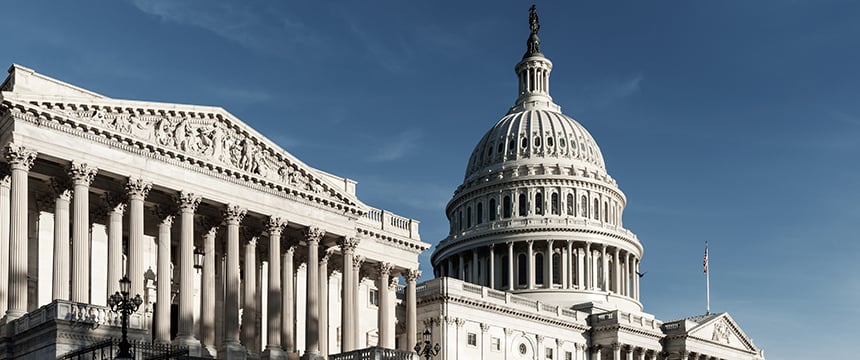
This article was originally published in Law360 on December 19, 2023, and is republished here with permission.
In 2023, the U.S. Department of Justice and Federal Trade Commission made significant progress on their multiyear efforts to expand antitrust enforcement in the field of labor and employment. This article provides an overview of the agencies’ key activities over the past year in this area.
FTC Proposes Nationwide Ban on Employee Noncompete Agreements
The FTC started 2023 with a bang when, on Jan. 4, it announced settlements against three companies for allegedly engaging in “unfair methods of competition” in violation of Section 5 of the FTC Act by requiring employees to sign overbroad noncompete agreements. Then, the next day, the FTC announced a proposed regulation that, if adopted, would ban virtually all employee noncompete agreements for nearly all employers across the U.S.
More than 21,000 comments were filed in response to the proposed regulation, ranging from vigorous support by individual workers to full-throated opposition by businesses and trade associations. The FTC is still reviewing and considering these comments, and a final rule is anticipated to be released as early as the first quarter of 2024.
Despite many commenters urging the FTC to narrow or abandon its proposed rulemaking, many observers expect the FTC to adopt a broad ban on the great majority of employee noncompete agreements, similar to what the FTC originally proposed.
Some organizations, most notably the U.S. Chamber of Commerce, have declared their intent to challenge any noncompete ban in court, on the grounds that the proposed rule potentially oversteps the FTC’s legal authority.[1]
DOJ Recalibrates Approach in Criminal No-Poach Cases
In the April 28 U.S. v. Patel decision, the DOJ suffered a high-profile loss in a criminal no-poach case when the U.S. District Court for the District of Connecticut issued a judgment of acquittal to all defendants, ruling that the alleged no-poach agreement at issue did not meaningfully end competition for employees.[2]
This acquittal represented the DOJ’s fourth trial loss in no-poach cases out of four attempts since 2016, when the DOJ first stated its intent to prosecute no-poach and “wage-fixing” cases criminally.
Several months after this ruling, the DOJ filed a notice of dismissal in the last remaining no-poach case, in a move that has been widely interpreted as the DOJ recalibrating its approach to no-poach cases.
Nevertheless, as Assistant Attorney General Jonathan Kanter made clear in a recent speech, the DOJ remains “as committed as ever to, when appropriate, using our congressionally given authority to prosecute criminal violations of the Sherman Act in labor markets.”[3]
Agencies Propose Revising the Merger Guidelines to Consider Labor Issues
In July, the agencies jointly announced a comprehensive overhaul of the federal merger guidelines. The guidelines lay out how the agencies analyze, and potentially challenge, mergers under the antitrust laws.
Among many other proposed changes, the agencies proposed expanding the merger guidelines to consider whether a merger may lessen competition by giving an employer the “power to cut or freeze wages, exercise increased leverage in negotiations with workers, or generally degrade benefits and working conditions without prompting workers to quit.”[4]
Approximately 1,600 comments have been submitted in response to the new proposed guidelines, which the agencies are currently evaluating before any changes to the guidelines are finalized.
Proposed HSR Changes Include Disclosures About Labor
In addition to revising the merger guidelines, over the summer the agencies also recommended significant changes to the information that needs to be submitted with Hart-Scott-Rodino, or HSR, Act premerger notification filings. The HSR Act generally requires that parties notify the agencies at least 30 days before certain $111.4 million-or-greater transactions may close.[5]
Among many other changes to the HSR process, the agencies are proposing a requirement that merging parties disclose their top five categories of workers as classified by the Bureau of Labor Statistics’s Standard Occupational Classification system. Then, if overlaps between the merging parties are reported, additional geographic information about these overlaps would be required as well.
Additionally, the agencies have proposed requiring information about any adverse penalties or findings issued against the merging parties by the U.S. Department of Labor’s Wage and Hour Division, National Labor Relations Board, or Occupational Safety and Health Administration in the prior five years.
These proposed changes to the HSR requirements may be finalized as soon as 2024.
Agencies Renew Enforcement Against Interlocking Directorates
Starting in 2022 and continuing into 2023, the agencies renewed their long-dormant enforcement of Section 8 of the Clayton Act. Section 8 broadly prohibits individuals from serving as an officer or director of two competing corporations at the same time, subject to certain de minimis exceptions.
In March, Assistant Attorney General Jonathan Kanter announced that the DOJ was in the midst of “the broadest enforcement program in the history of Section 8,” with purportedly more than a dozen currently active investigations underway.[6]
In August, meanwhile, the FTC brought its first Section 8 case in 40 years.[7] Suffice to say the agencies are enforcing Section 8 aggressively — so much so that some of the DOJ’s latest enforcement efforts may potentially exceed the bounds of Section 8 altogether.[8]
Agencies Withdraw Healthcare Guidance Regarding Wage Information Sharing
Over the course of 2023, the DOJ and FTC each separately withdrew from a long-standing healthcare policy statement that, in part, recognized antitrust safety zones for businesses that exchange wage or benefit information — e.g., wage surveys — subject to certain safeguards.
These safeguards included that an independent third party manage the survey, that the information reported be at least three months old, and that the information be sufficiently aggregated so that recipients could not reverse-engineer the information of any participant. In announcing its withdrawal, the DOJ argued that the healthcare policy statement was overly permissive and outdated.[9]
The agencies will now look at information sharing on a case-by-case basis. Curiously, however, the agencies have not yet withdrawn or revised the 2016 Antitrust Guidance for Human Resource Professionals, which continues to reference the now-withdrawn healthcare policy statement as persuasive guidance for how businesses may appropriately exchange information about wages or benefits.[10]
Increased Agency Cooperation With Non-Antitrust Labor Enforcers
Finally, the agencies continue to work administratively to increase cooperation with labor enforcement agencies. In 2022 and continuing into 2023, the DOJ and FTC each signed separate memoranda of understanding with the NLRB and DOL pertaining to the mutual exchange of relevant information discovered during law enforcement investigations.[11]
For example, if the FTC discovers a potential labor law violation during the course of an antitrust merger investigation, there is now an established mechanism in place to enable the FTC to share that information with DOL or NLRB as appropriate.
The same is true if the DOL or NLRB find evidence of an antitrust violation during the course of their own investigations. Although some agency cooperation has taken place in the past, these MOUs signal a more focused cross-agency enforcement effort for both antitrust and labor law violations.
Conclusion
In recent years, the agencies have made significant progress in their efforts to expand antitrust enforcement to labor and employment. But 2023 has been the agencies’ most active year yet.
With newfound enforcement strategies, policy reforms and multiple proposed rulemakings on the docket for 2024, anticipate another busy year for the agencies ahead of the 2024 election.
[1] https://www.wsj.com/articles/chamber-of-commerce-will-fight-ftc-lina-khan-noncompete-agreements-free-markets-overregulation-authority-11674410656.
[2] https://scholar.google.com/scholar_case?case=11956778281717959879&q=u.s.+v.+patel+d.+conn.&hl=en&scisbd=2&as_sdt=4,138.
[3] https://www.justice.gov/opa/speech/assistant-attorney-general-jonathan-kanter-delivers-remarks-fordham-competition-law.
[4] https://www.ftc.gov/system/files/ftc_gov/pdf/p859910draftmergerguidelines2023.pdf.
[5] https://www.govinfo.gov/content/pkg/FR-2023-01-26/pdf/2023-01533.pdf.
[6] https://www.justice.gov/opa/speech/assistant-attorney-general-jonathan-kanter-antitrust-division-delivers-remarks-keystone.
[7] https://www.ftc.gov/news-events/news/press-releases/2023/08/ftc-acts-prevent-interlocking-directorate-arrangement-anticompetitive-information-exchange-eqt?utm_source=govdeliveryr.
[8] https://www.foley.com/insights/publications/2023/08/analysis-deputization-theory-section-8-clayton-act/.
[9] https://www.justice.gov/opa/pr/justice-department-withdraws-outdated-enforcement-policy-statements.
[10] https://www.justice.gov/atr/file/903511/download.
[11] https://www.justice.gov/opa/pr/departments-justice-and-labor-strengthen-partnership-protect-workers;
https://www.ftc.gov/legal-library/browse/cooperation-agreements/memorandum-understanding-between-us-department-labor-federal-trade-commission.

